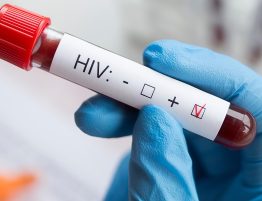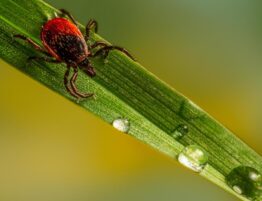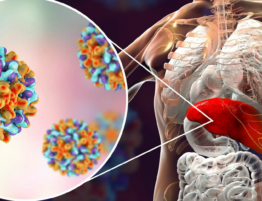
Ebola fever
Ebola fever is an acute viral highly contagious infectious disease with a mortality rate of up to 90%.
The causative agent of Ebola fever is an RNA genomic virus of the Filovirus genus of the Filoviridae family.
The Ebola virus was discovered in what is now the Democratic Republic of the Congo in 1976.
The disease begins with severe weakness, headache, pain in the throat, muscles, stomach, diarrhea. Later, a dry cough, chest pain appears, and signs of dehydration develop.
The virus disables the blood’s ability to clot, causing patients to often suffer from internal and external bleeding.
People aged 15 to 59 years most often fall ill, and many die within 10 days.
Incubation period
The incubation period lasts 21 days.
Transmission of infection occurs through direct contact with blood and other biological fluids and tissues of patients; aerosol transmission of infection, as well as transmission of infection through vectors, cannot be excluded.
The entry points for infection are the mucous membranes of the respiratory tract and microtraumas of the skin.
The outbreak of the deadly virus began in 2014 during the winter in West Africa. In total, more than 1,000 people have died from Ebola in Sierra Leone, Liberia and Guinea since the beginning of the year. The dangerous disease was diagnosed in more than 1.7 thousand people.
According to WHO, Guinea has 396 cases and 280 deaths, Sierra Leone has 176 cases and 46 deaths, and Liberia has 63 cases and 41 deaths.
Currently, there are patients with Ebola in the USA, China and Spain.
Infection
Infection of people occurs when caring for the sick, in domestic conditions – through hands and household items contaminated with the biological fluids of the patient. Infection is also possible through sexual contact. The disease is highly contagious and is transmitted through contact with the blood or other fluids of infected people or animals (rodents, bats), and monkeys may also play a role. It is very common for healthcare workers to become infected when providing medical care to a patient with Ebola.
Treatment and prevention
Specific agents for the treatment and prevention of this infection have not yet been developed in the world!
To prevent infection with the virus in African countries, you should not have close contact with local residents, as well as with monkeys and bats.
It is also recommended to refrain from visiting crowded places and contacting sick people with high fever.
All arrivals from West African countries (Sierra Leone, Guinea, Liberia, Democratic Republic of the Congo, Uganda, South Sudan, Gabon) are advised to contact medical institutions for medical observation at their place of residence for 21 days.
Ministry of Health of the Republic of Belarus. State Institution “Brest Zonal Center for Hygiene and Epidemiology” Brest, 2014







